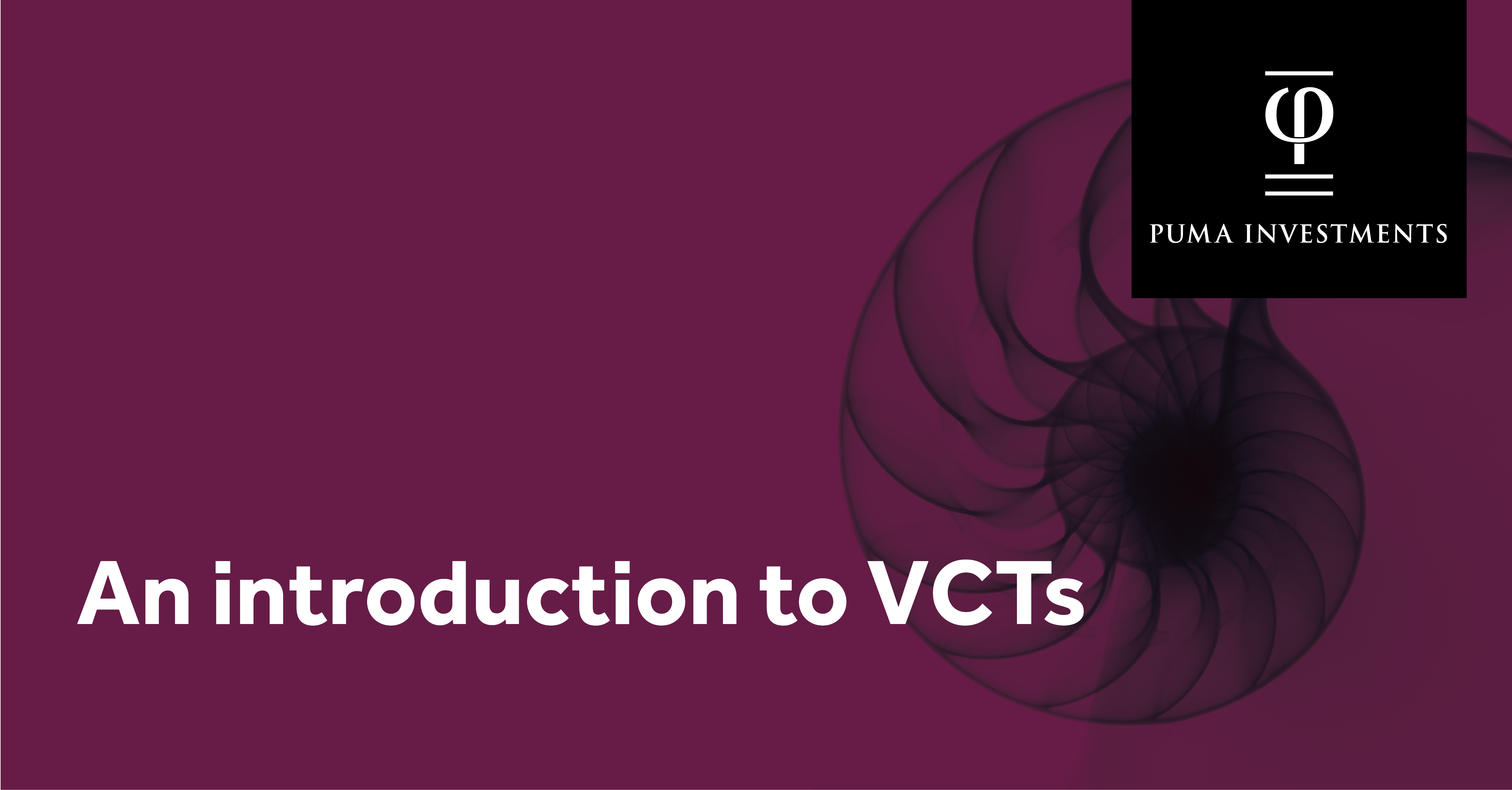
What VCTs can offer in today’s environment
What VCTs can offer in today’s environment
First launched in 1995, VCTs provide a vital source of funding to the UK’s many small but growing companies. They have helped to create jobs, fuel innovation and stimulate the growth of some of the country’s most promising businesses.
Balancing risk and reward
To encourage investment into VCTs, investors may receive a number of benefits – in particular, tax reliefs.
Provided an investor holds the VCT shares for a minimum of five years, and that the VCT invests in qualifying companies, depending on their individual circumstances investors should be eligible to receive:
- Up to 30% upfront income tax relief on an investment of up to £200,000 per tax year
- 100% tax-free dividends from the VCT (which doesn’t need to be declared on a tax return)
- 100% tax-free capital gains, if selling the VCT shares at a profit
There are other benefits too. VCTs can diversify an investment portfolio, as they tend to be uncorrelated to main market investments. In addition, if an investor has used up their pension or ISA allowance, VCTs provide an alternative way to access tax reliefs. It is important to note, however, that the tax treatment will depend on the individual’s circumstances and is not guaranteed – and that legislation could change in the future.
How VCT investing works
A VCT is an investment company listed on the London Stock Exchange. It uses the money received from investors primarily to buy shares in VCT-qualifying, typically privately-owned companies. As it is a listed company in its own right, investment in a VCT will deliver shares in the VCT itself rather than shares in the individual underlying investment companies.
VCTs have stringent criteria around the types of companies that qualify for investment so that investors’ money is directed towards those companies most in need of finance to grow.
For instance:
- Companies must be less than seven years old from the date of their first commercial sale, with the exception of Knowledge Intensive Companies and certain follow-on investments.
- They must also be UK-based and conduct a ‘qualifying trade’. While most trades are allowed, notable exceptions include financial activities, forestry, farming, hotels and energy generation.
- A company can qualify for VCT investment if it has maximum £15 million of gross assets immediately prior to the investment, under 250 employees and less than seven years of trading (or 500 employees and 10 years, for Knowledge Intensive Company).
- A VCT can invest up to 15% of its money in any one investee company.
Choosing an investee company
At Puma Investments, our origins lie in the management of VCTs and they remain core to what we do: we now have 14 under our belt having launched Puma VCT 13 and Puma Alpha VCT in 2017 and 2019, respectively. To mitigate some of the risks involved in VCT investing, we aim to deliver compelling returns through investments in companies that have graduated from ‘start-up’ to ‘scale-up’. Avoiding the volatility that comes with the riskier start-up space, our aim is to provide investors with attractive but stable returns from more established companies – that are still small enough and young enough to grow and create meaningful investment exits.
As the economy continues to react in response to the pandemic, younger VCTs can deliver more agility in looking across the market for businesses that have demonstrated resilience during unprecedented levels of turbulence. For instance, some of the companies in which our two latest VCTs have invested into range from: Le Col – a leading British cycling brand founded by ex-professional cyclist Yanto Barker; to MyKindaFuture – the UK’s largest emerging talent specialist; Influencer – a leading influencer marketing platform run by renowned entrepreneurs Ben Jeffries, Caspar Lee and Adam Ludwin; and Pure Cremation – the UK’s leading provider of direct cremations.
By investing in scale-up, high-growth businesses we believe there is potential to achieve start-up levels of return at lower risk. Our investment mandate also enables us to source opportunities across the market whilst achieving portfolio diversification. And by co-investing some of our EIS and VCT offers, we’re able to achieve swifter deployment whilst giving investors access to a wider pool of investments.
Getting in touch
If you’d like to hear more about how VCTs may benefit your clients, please get in touch with our Business Development Team on 020 7408 4070 or [email protected] and we will be happy to talk to you further.
¹ www.fsb.org.uk/uk-small-business-statistics.html
An investment in Puma VCTs carries risk and investors should take their own independent advice. Investors should only invest in Puma VCTs on the basis of the relevant prospectus which details the full risks of the investment. An investment may not be suitable for all investors given the key risks which are summarised as follows: Past performance is not a guarantee of future performance; investor capital may be at risk; tax reliefs and the payment of dividends are not guaranteed; the investment should be viewed as a long-term and potentially illiquid; the Financial Ombudsman Service/the Financial Services Compensation Scheme are not available, and investors have no direct right of action against Puma Investments. Puma Investments is a trading name of Puma Investments Management Limited which is authorised and regulated by the FCA (FRN 590919).